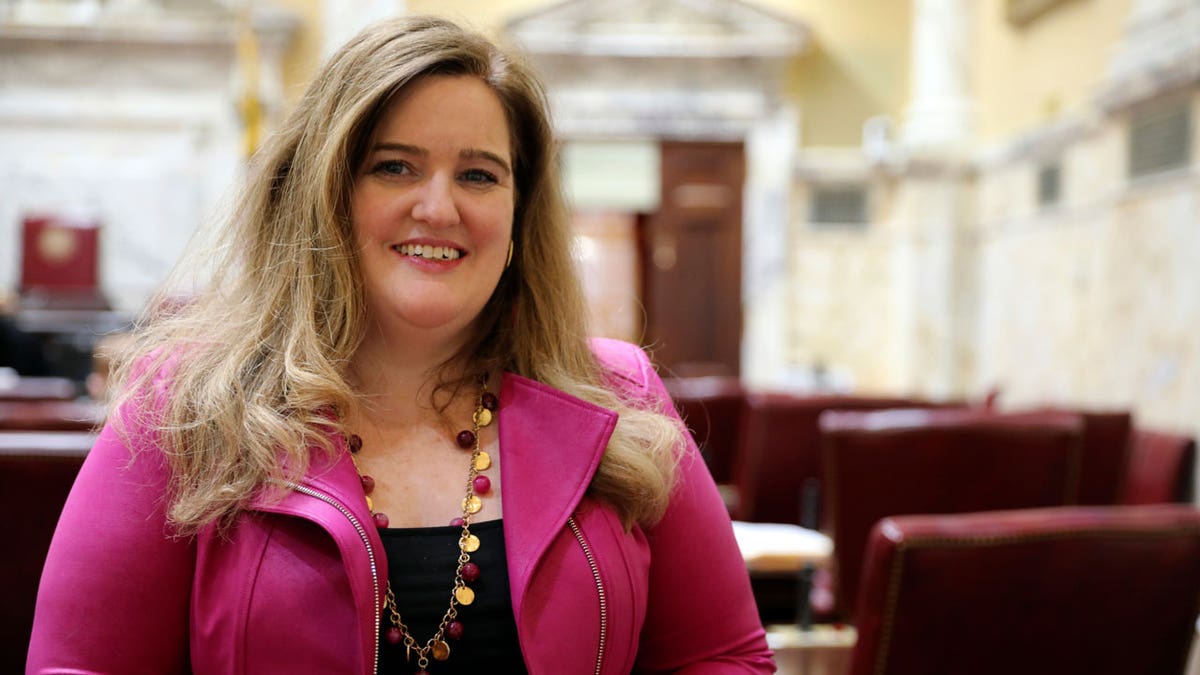Catholic churches are ‘top targets’ for pro-abortion activists: Tommy Valentine
CatholicVote Accountability Project’s Tommy Valentine joins ‘Fox & Friends Weekend’ to discuss the surge in violent attacks on Catholic churches since 2020.
Abortion clinics in Maryland could pay for enhanced security and greater access through a grant program being considered by state lawmakers, who want to tap into millions of dollars that have sat unused by insurance carriers as part of the federal Affordable Care Act.
Supporters testified Wednesday that Maryland is seeing a rising demand on its abortion clinics, including from women from out of state, since the U.S. Supreme Court stuck down Roe v. Wade in June 2022. Security concerns, long an issue at clinics, also have been increasing, supporters of the bill told the Maryland Senate Finance Committee at a bill hearing.
Maryland lawmakers have taken steps to expand access to abortion in anticipation of more women arriving for services from other states that have banned or restricted it. Maryland voters will be deciding whether to enshrine the right to abortion in a constitutional amendment in November.
Sen. Ariana Kelly, a Democrat who is sponsoring the legislation, said abortion providers reported increases in assault and battery, burglaries, stalking and bomb threats in 2022.
"This is a real concern that is really impacting peoples’ ability to access care, which is why I’m here today with this legislation," Kelly said.
Robyn Elliott, who represents the Women's Law Center of Maryland and the Maryland Affiliate of the American College of Nurse-Midwives, told lawmakers that providers are facing "a crisis," and she described the measure as "a very innovative way to move forward in Maryland."

Democratic Maryland state Sen. Ariana Kelly poses in the Maryland Senate on March 6, 2024, in Annapolis, Md., ahead of testifying on legislation for a grant program to provide security funding for abortion clinics. (AP Photo/Brian Witte)
"On behalf of the providers who we represent, their safety and security is something that they do worry about more and more over time, and as well as those for their patients," Elliott said.
The measure would create a fund by using millions of dollars that have accumulated over the years with insurance carriers, Kelly said. The federal health care law required insurance carriers to collect $1 every month from each person who buys health insurance on a health care exchange that could only be used for abortion care services, she said.
In 2022, the state required insurance carriers to submit a report each year about those funds. Since 2014, the amount has grown to about $18 million, and is expected to grow by about $3 million a year, Kelly said.
The grant program would be run by the state health department. The money would be used for security infrastructure and staffing, such as cameras and lighting to enable staff inside clinics to monitor outside the clinic where protesters interact with patients, sometimes right up to the clinic's door, Kelly testified.
Lynn McCann is the co-director of Baltimore Abortion Fund, a nonprofit that provides support for people seeking abortion services. She said her organization’s confidential help line has received a big increase in calls and was forced to shut down last month when it ran out of funding.
"As costs and demands skyrocket, our statewide network of abortion funds, clinics and providers who facilitate access to abortion are really being pushed to the brink," McCann said.
Laura Bogley, executive director of Maryland Right to Life, which opposes abortion, testified against the legislation. She said abortion supporters have created a "manufactured crisis."
CLICK HERE TO GET THE FOX NEWS APP
"Abortion activists through the legislature have worked to create Maryland as an abortion tourism destination and now they expect Maryland taxpayers to pay for abortions for women being trafficked in from out of state," Bogley testified.
Currently, 14 states are enforcing bans on abortion in all stages of pregnancy and two more have bans that kick in after the first six weeks — often before women realize they’re pregnant. Other Republican-controlled states have imposed lighter restrictions.
Meanwhile, most Democrat-controlled states, like Maryland, have taken steps to protect abortion access.




